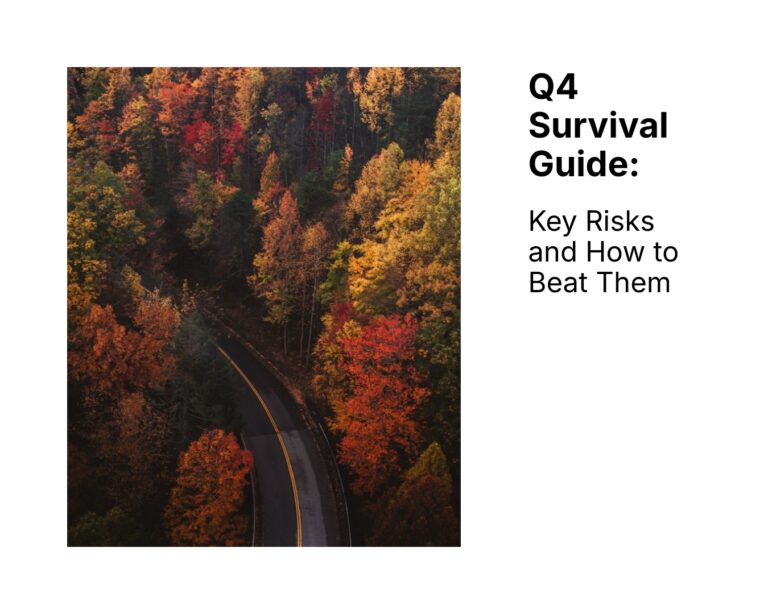Revealed – The Hidden Traits of UK’s Most Successful Scaleup Businesses
In this article, we look at what it takes to be one of the most successful scaleups by examining the challenges they face and how they overcome them.
Scaleups aren’t just fast-growing companies. They’re economic powerhouses hiding in plain sight.
UK scaleups represent only 0.6% of SMEs. Nevertheless, they generate half of the total SME contribution to the UK economy (£1 trillion). The secret? They develop and maintain clear growth plans, strive for innovation, and are highly productive.
The Organisation for Economic Co-operation and Development (OECD) defines a “scaleup” business (a high-growth business) as:
“Firms with at least 10 employees that grow at a yearly rate of 10% or more in either employment or turnover over 3 consecutive years.”
Let’s consider the biggest challenges that scaleups face and discuss actionable solutions.
3 Biggest Challenges Every Scaleup Faces
1. Accessing & Developing Markets
Gaining access to national and international markets through public organisations and large corporations is cited as the most significant challenge to growth by scaleup CEOs. This is a critical avenue for high growth through sales and collaboration opportunities.
2. Attracting & Retaining Top Talent
Scaleups seek to develop senior teams that embody critical thinking and service orientation which are considered key skills for profitable, sustainable growth. This is usually achieved through a combination of training and recruitment of top-level talent. Access to external mentors is also preferable and associated with the fastest-growing scaleups.
3. Securing Growth Financing
Accessing appropriate finance is the last challenge. 75% of SMEsare using external finance, but 6 out of 10 feel they don’t have the right finance in place. Innovation and R&D funding schemes are preferable for scaleups.
Actionable Solutions
Strategic Planning
There is no secret formula to successful scaleups, they merely recognise the need to put in the hard work, in the right order. That starts with strategic planning.
There is no getting around this.
Here’s a 7-step process to scope your strategy:
- Define your big-picture vision – who are you and where are you going?
- Set SMART objectives – specific, measurable, achievable, relevant, timebound.
- Identify key team members – allocate objectives relevant to existing aptitudes.
- Scope out strategies – create detailed roadmaps for achieving your objectives.
- Specify resources needed – identify incremental and re-purposed resources for the delivery of your strategies.
- Identify and engage with key supporters – stakeholders, that includes your customers.
- Schedule regular review meetings – critical analysis is imperative.
The business strategy must be completed with the people who will implement it, and any team expansion should automatically trigger a review of the strategy, in addition to regular scheduled reviews, to ensure new talent is onboarded and allowed to contribute. Innovation is key so there is no place for closed processes and inflexible approaches.
Working on the Business
Successful scaleups also recognise the importance of working on the business as well as working in the business.
Working on the business means seeing the business as a whole and ensuring that its component parts work in unison to deliver the business’ aims.
The component parts include marketing, production, sales, service and delivery, as well as leadership, management and team efficiency. All components must be efficient, achieve the relevant strategy and operate in unison through clear infrastructure.
The Benefits of Mentors
Scaleups are tireless in their pursuit of innovation to achieve sustainable growth. Yet it is critical to their success that they recognise shortfalls in skills, markets or resources. External mentors can facilitate access to these.
Fast-growth scaleups also use external mentors to ensure effective deployment of their strategy by holding them accountable to set objectives.
How a Fractional CFO Can Help
Successful scaleups maintain consistent growth through consistent drive. There is no room for complacency. Maintaining high-performance teams is key, and seen as a critical component of thriving scaleups which must include financial expertise.
A fractional CFO is paramount, contributing to the strategy and offering additional expertise for the acquisition of funding.
The team at WrightCFO possesses multi-sector skills and significant experience with scaleups. Whatever stage your business is at, scaling is an achievable goal. Book a free consultation with WrightCFO today and see how we can help.
This article was originally published on LinkedIn on 12th September 2024.










